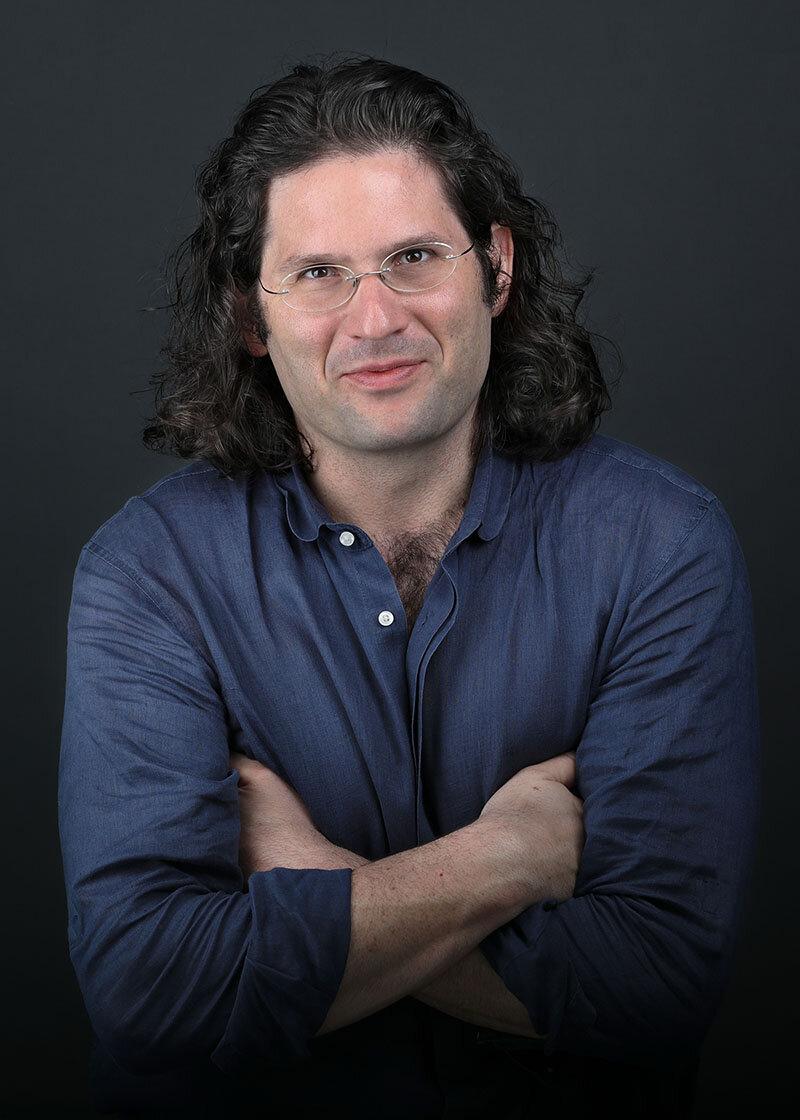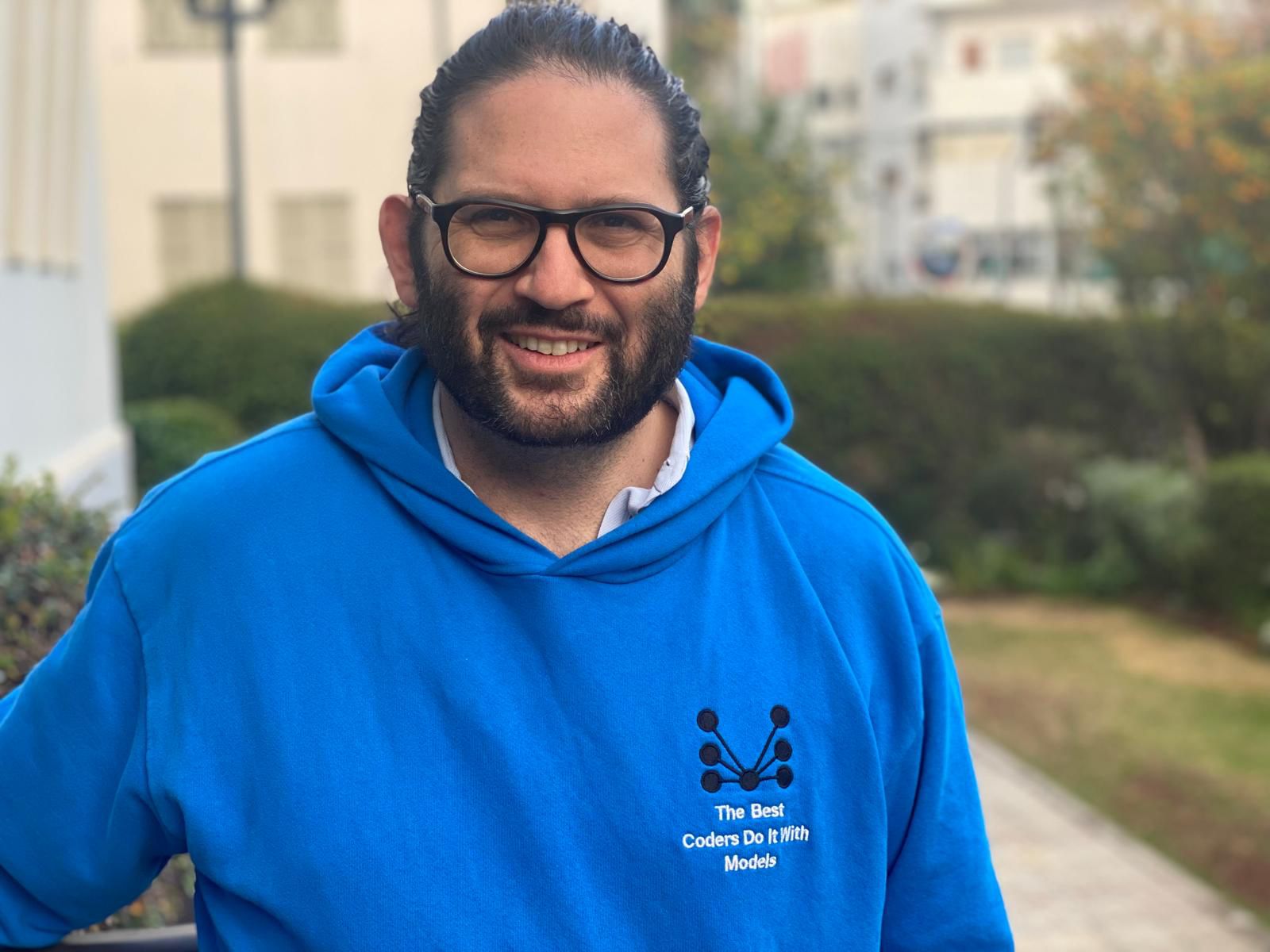Why Zionist Tech Investor Michael Fertik Is Finally Hiring in Israel
Michael Fertik, founder of Reputation.com, launches Modelcode Chai—his first AI subsidiary in Israel—to modernize legacy code using top local talent. He's already made his initial hires amid challenging economic conditions
Michael Fertik, managing director and founder of Heroic Ventures and executive chairman and founder of Reputation.com, has long been a Zionist. Yet despite hiring thousands of employees across the US, Europe, and Latin America and investing in more than 15 Israeli companies, he had never opened a subsidiary in Israel—let alone hired a single person.
Until now.
I am an overt Zionist, but that’s not enough of a reason to open a company in Israel for me because first we have to make a return. The kinds of companies I had previously built did not require the special advantages that Israelis represent. Now, we’re in a global AI [artificial intelligence] revolution that is perfectly met by Israeli talent.
“I am an overt Zionist, but that’s not enough of a reason to open a company in Israel for me because first we have to make a return,” Fertik told The Media Line last week. “The kinds of companies I had previously built did not require the special advantages that Israelis represent. Now, we’re in a global AI [artificial intelligence] revolution that is perfectly met by Israeli talent.”
Fertik was in Israel last week to launch Modelcode Chai, a new subsidiary of his US-based company, Modelcode AI. This company uses generative AI to modernize outdated code. The industry is growing by roughly 15% per year in the US.
It’s an enormous market, as every company and government in the world is suffering from old code.
“It’s an enormous market, as every company and government in the world is suffering from old code,” Fertik explained.
He offered a simple example: when an Android user tries to share their WhatsApp contact via QR code with an iPhone user, and it doesn’t work, that’s a legacy tech debt problem.
“Old code affects everybody all the time,” he said, describing it as “gnarly and difficult and naughty and thorny.”
In the past, modernizing a bank’s outdated code could cost upwards of a billion dollars and take 12 years. Because of the expense and complexity, many banks simply opted to live with the inefficiencies. But with generative AI, that same transformation can now be done in a fraction of the time and at a tenth of the cost.
While deep AI research will generate significant value, Fertik believes wealthier nations—like the US and China—should conduct this kind of research best. However, he noted that these countries are not working collaboratively. The real opportunity, he said, lies in AI applications, which will drive the most value over time.
And that’s where Israel comes in.
This holiday season, give to:
Truth and understanding
The Media Line's intrepid correspondents are in Israel, Gaza, Lebanon, Syria and Pakistan providing first-person reporting.
They all said they cover it.
We see it.
We report with just one agenda: the truth.


Israelis are extraordinarily creative, resource-constrained, with a can-do attitude, relentless effort, and an optimistic sense that the impossible is possible because miracles happen here all the time. This is exactly the profile of the person you need to build the most creative, dynamic AI applications.
“Israelis are extraordinarily creative, resource-constrained, with a can-do attitude, relentless effort, and an optimistic sense that the impossible is possible because miracles happen here all the time,” Fertik said. “This is exactly the profile of the person you need to build the most creative, dynamic AI applications.”

Michael Fertik. (Courtesy)
“This is a very hard set of problems, and it’s tailor-made for the moonshot,” he continued. “It’s the kind of thing that Israelis do well—or better than anyone else.”
He told The Media Line that while Israel will likely rank among the top 10 countries for deep AI research in practical or applied AI—an industry projected to reach trillions of dollars—it could also be in the top three.
Fertik acknowledged that hiring talent in Israel is more expensive than in many other places, but he believes the investment is worth it.
“It’s as good as it gets. That’s why I am here,” he said.
Over the summer, the Israel Innovation Authority released a report highlighting Israel’s growing presence in the generative AI sector. The report found that only about 4% of companies operating in this space are Israeli—a small percentage but one that places the country behind only the United States and the United Kingdom.
In the report, Authority CEO Dror Bin emphasized Israel’s competitive edge:
Israel’s unique advantage stems from a combination of deep technological expertise, proven research capability, and a profound understanding of global market needs. Israeli companies are at the forefront of developing advanced models, optimizing performance, and creating innovative applications in areas such as natural language processing, computer vision, and cognitive automation.
“Israel’s unique advantage stems from a combination of deep technological expertise, proven research capability, and a profound understanding of global market needs. Israeli companies are at the forefront of developing advanced models, optimizing performance, and creating innovative applications in areas such as natural language processing, computer vision, and cognitive automation.”
The report identified 18 leading companies developing foundation models, one of which is Israeli. Thus, Israel is ranked third in the world, alongside France, the United Kingdom, and Germany.
The study found 1,900 companies worldwide producing large and complex models tailored for specific uses, 73 of which were Israeli—again securing Israel’s spot in third place.
However, the report has not yet analyzed companies using pre-existing AI models through an API (application programming interface), a key area of focus for Fertik and Modelcode Chai.
Fertik has not opened a dedicated office in Israel yet. The team will likely work from a rented co-working space until it grows. His goal is to hire around eight employees in the first few months, and while in Israel last week, he made his first four hires—software developers and data scientists.
The October 7 massacre and the ongoing war have placed Israel in a challenging economic position, particularly when it comes to attracting foreign investors. Some may hesitate to work with Israeli companies due to the growing stigma surrounding its operations in Gaza.

Michael Fertik. (Courtesy)
A separate Innovation Authority report, published at the end of last year, underscored these challenges. It found that “Israeli high-tech is contending with a complex situation.”
On the one hand, the industry has maintained stable investment and employment in recent years. On the other hand, after a decade of rapid growth, Israel’s high-tech sector has seen no significant expansion in key metrics for over two years.
Since the second half of 2022, the total number of high-tech employees has remained nearly unchanged, accounting for around 11% of the country’s workforce.
Because high-tech employees contribute significantly to state revenues from income tax, this stagnation may affect state revenues in the years to come—this, during a period in which the state budget is already contending with a deepening deficit, raising the need for growth-stimulating measures.
“Because high-tech employees contribute significantly to state revenues from income tax, this stagnation may affect state revenues in the years to come—this, during a period in which the state budget is already contending with a deepening deficit, raising the need for growth-stimulating measures,” the report stated.
While Fertik’s company, with fewer than a dozen employees, is unlikely to shift the industry’s trajectory single-handedly, he sees its launch as a message to hesitant investors: Israel remains a viable and valuable hub for technology.
He is unapologetic about his decision.
“I have been doing business for 25 years and investing in Israeli startups for 10 years,” Fertik said. “This is technology, country fit.”

